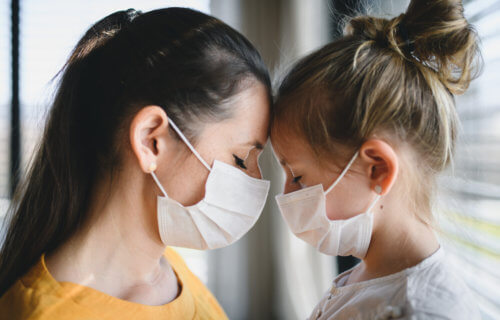CAMBRIDGE, United Kingdom — Studies say that for every person who dies, at least nine people in their life are affected by grief. Over the past year, the coronavirus pandemic has left millions of people around the world grieving for lost loved ones. While many of these individuals would normally be able to find professional help for their mental health recovery, a new study finds COVID-19 is straining bereavement care services worldwide. The results may create a “silent epidemic of grief” affecting countless patients still losing loved ones during the ongoing pandemic.
Researchers from the University of Cambridge say grief counseling has been in high demand since the start of the pandemic. In the first study examining how these services have had to change during COVID lockdowns and quarantines, many practitioners say they don’t have the ability to meet the overwhelming demand for care. The survey of over 800 health and social care staff reveals that, in some instances, workers with little experience have been thrown into bereavement care positions to meet the need.
“We had 600% increase in deaths for a 3-week period. Dealing with the backlog of bereavement support was challenging,” one palliative medicine doctor says in a university release.
COVID protocols disrupting the national grieving process
For many families, the end of their loved one’s life was marred by social distancing measures — leaving many people to die alone in unfamiliar hospital rooms. Even funerals are altering their proceedings during the pandemic; preventing relatives from finding the closure they need. Researchers say all this has compounded and prolonged the grieving process for many patients seeking counseling during the pandemic.
“Many people who died were denied opportunity to die in their preferred place of care / preferred place of death and died in suboptimal environments to receive their care in last days,” explains one general practitioner.
One of the major challenges the health care workers from the U.K. and Ireland report is the switch to telephone and video appointments. Despite disruptions from furloughs and staff redeployments early on during COVID, nine in 10 respondents still name telehealth as the biggest change to adjust to during the crisis. The health care workers add that telehealth is especially challenging to use due to the limited access they have to the equipment they need and the limited training they have in using it.
The survey, conducted in August 2020, adds that counseling remotely has its pros and cons. While technology allows health care professionals to reach more people, respondents say remote work is “draining” and difficult to manage. The group also expects the work to become more demanding as the months wear on.
“We are really only seeing those who have been bereaved in Jan/Feb so far, so there may be many more to come,” says one Community Listening Service Coordinator.
“It has felt as though we are dealing with them at arm’s length whereas we would be there to hold their hands, give them a hug as needed,” adds another survey respondent.
COVID carries its own unique grieving challenges
Although the grieving process is very much the same for families losing relatives to COVID or non-COVID conditions, the study finds the pandemic is causing many grieving loved ones some unique mental health challenges.
Researchers say some patients are experiencing anger over their loved one’s death having a connection to the pandemic. One bereavement specialist says the illness has a “stigma” around it. Study authors believe this stigma may cause some to believe they didn’t do enough to protect their relative from COVID-19.
“There may be a silent epidemic of grief that we have not yet picked up on,” one surveyed doctor explains.
“Bereavement care has undergone major changes in both acute and community settings affecting bereaved people, clinicians, support workers and the wider health and social care system. The increased need for bereavement care has challenged practitioners as they have taken on new responsibilities and skills and shifted to remote and electronic working. The increased potential for prolonged and complicated grief responses among those bereaved during this period is particularly concerning,” lead researcher Dr. Caroline Pearce says.
“Speaking about grief remains an area of public discomfort, and it is important practitioners encourage bereaved people to view grief as a ‘valid’ reason to seek help from health and community services, as well as from those they trust in their communities. It was heartening that many respondents reported the development of new and expanded services, but it is imperative that these are made sustainable in the longer-term. The need isn’t going away,” Andy Langford, Clinical Director of CRUSE Bereavement Care, concludes.
The study appears in the journal BMJ Open.
